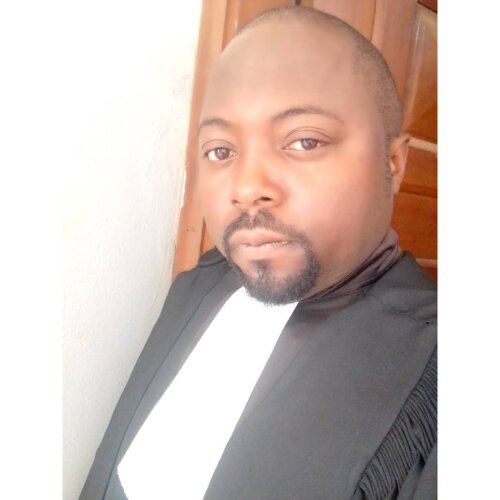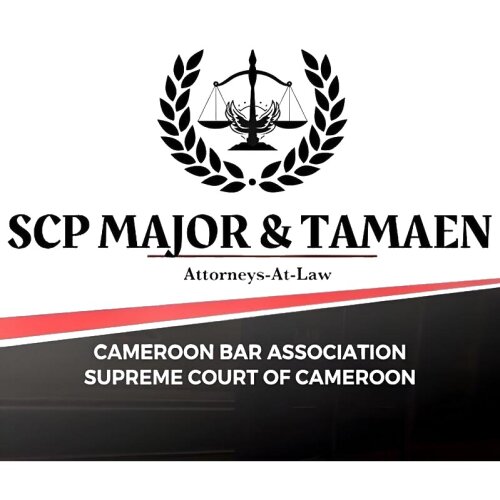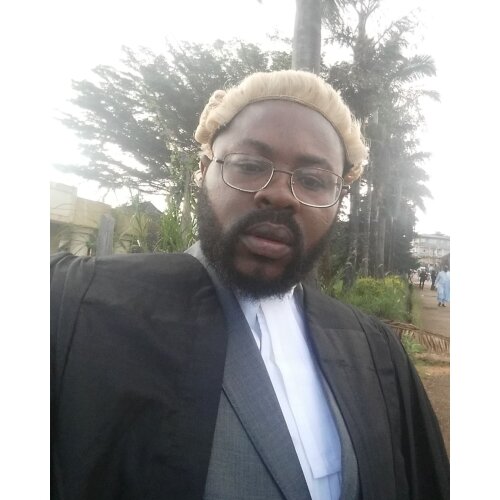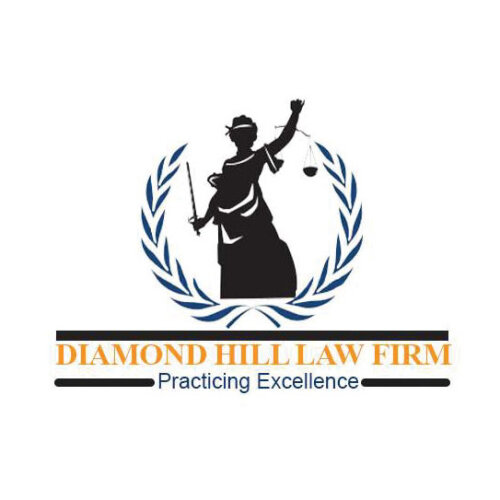Best Water Law Lawyers in Cameroon
Share your needs with us, get contacted by law firms.
Free. Takes 2 min.
Or refine your search by selecting a city:
List of the best lawyers in Cameroon
Legal guides written by CHI & Partners Law Firm:
- Ship Registration in Cameroon
About Water Law in Cameroon
Water Law in Cameroon covers the legislation and regulations related to the ownership, management, use, and protection of water resources within the country. Water resources in Cameroon include rivers, lakes, underground water, and rainfall. The government of Cameroon, through various statutes and regulations, manages water allocation, quality control, and preservation to ensure sustainable access and use by citizens, industries, and agricultural stakeholders. Water Law is crucial for balancing the needs of people, businesses, the environment, and public health.
Why You May Need a Lawyer
Legal issues related to water are diverse and can significantly impact individuals, communities, and businesses. Some common situations where you may need a lawyer with expertise in Water Law in Cameroon include:
- Resolving disputes over water access or usage rights between neighbors, communities, or companies.
- Navigating the licensing and permit process for water extraction or commercial use.
- Addressing environmental concerns related to pollution or contamination of water sources.
- Understanding regulations governing domestic, agricultural, or industrial use of water resources.
- Challenging government decisions regarding water resource allocation or infrastructure projects.
- Dealing with expropriation or compensation issues involving water bodies or land adjacent to water sources.
- Ensuring compliance with public health and sanitation laws regarding water supply and wastewater management.
In these and other situations, a legal specialist can help you protect your rights and understand your obligations under Cameroonian Water Law.
Local Laws Overview
The legal framework for Water Law in Cameroon is shaped by national laws, regional agreements, and international treaties. Here are some key aspects:
- The primary law is Law No. 98/005 of 14 April 1998 on Water Regime in Cameroon, which establishes state ownership of all water resources and sets guidelines for their sustainable management.
- Water is considered a public asset, and its allocation, distribution, and use are subject to regulation by state authorities.
- Licenses or permits are required for significant water usage, such as irrigation, industrial consumption, or the creation of dams and reservoirs.
- The law distinguishes between drinking water, agricultural use, and industrial water, regulating each accordingly to ensure safety and efficiency.
- Municipal councils are often responsible for local water management, including supply and sanitation services in urban centers.
- The Ministry of Water and Energy is the chief regulatory body for water policies, enforcement, and national planning.
- Laws addressing water pollution set standards for wastewater discharge and require environmental impact assessments for large projects.
- Customary law also influences water usage and access, especially in rural areas, and can intersect with statutory law.
Frequently Asked Questions
What is the main law governing water in Cameroon?
The key law is Law No. 98/005 of 14 April 1998 on Water Regime in Cameroon. This law outlines the management, use, and protection of all water resources in Cameroon.
Who owns water resources in Cameroon?
All water resources are owned by the state on behalf of the public, according to Cameroonian law. Individuals or organizations can access and use water through licenses or permits.
Do I need a permit to use water from a river near my property?
For personal, domestic use in limited quantities, permits are usually not required. However, for commercial, agricultural, or large-scale use, you must obtain a permit from the relevant authorities.
What should I do if my neighbor blocks my water access?
You should first try to resolve the matter amicably. If unsuccessful, seek legal advice or mediation. In cases where your legal right to water access is violated, you may pursue action in administrative or civil courts.
What are the penalties for illegal water extraction?
Penalties can include fines, seizure of equipment, and even criminal charges, especially for significant violations or repeated offenses.
How are water pollution disputes handled?
Pollution disputes are typically managed by environmental authorities and can lead to administrative, civil, or criminal proceedings. Affected parties can seek compensation or injunctions through the courts.
Can customary rights to water conflict with national law?
Yes, especially in rural areas where traditional practices may not align with national regulations. Such conflicts are typically resolved through negotiation, legal action, or policy intervention.
Who regulates drinking water quality in Cameroon?
The Ministry of Water and Energy, in collaboration with municipal councils and the Ministry of Public Health, monitors and enforces drinking water quality standards.
Are there special laws for water use in agriculture?
Agricultural water use is regulated under the same main framework, but specific rules apply for irrigation, large-scale extraction, and pollution control to protect resources and ensure equitable distribution.
How can businesses ensure compliance with Water Law?
Businesses must obtain the appropriate permits, adhere to environmental standards, conduct impact assessments where required, and ensure regular monitoring and reporting of their water usage and wastewater management practices.
Additional Resources
If you need more information or guidance, the following resources can be useful:
- Ministry of Water and Energy - Main governmental body overseeing water policy, permits, and regulation
- National Water Committee (Comité National de l’Eau) - Advisory body on state water policy and regulation
- Local municipal councils - For information on local water supply and sanitation services
- Ministry of Environment, Nature Protection and Sustainable Development - For environmental permits and pollution control
- Non-governmental organizations such as WaterAid Cameroon and Global Water Partnership - For advocacy and community support on water access and rights
- Local legal aid offices and accredited law firms specializing in environmental and administrative law
Next Steps
If you believe your rights have been affected or you are facing challenges relating to water use, follow these steps:
- Document your situation clearly with all relevant facts, evidence, and correspondence.
- Identify the specific issue - whether it is access, pollution, permits, or another area.
- Reach out to the appropriate authority, such as your local council or the Ministry of Water and Energy, to understand administrative remedies or for initial guidance.
- If your matter is complex or unresolved, consult with a lawyer who specializes in Water Law or environmental law.
- Prepare all necessary documents and questions before your consultation to maximize its effectiveness.
- Follow your lawyer’s advice and be proactive in monitoring the status of any applications, permits, or legal proceedings.
Seeking guidance early, maintaining good records, and working with experienced professionals helps protect your interests and ensures you comply with the law in Cameroon.
Lawzana helps you find the best lawyers and law firms in Cameroon through a curated and pre-screened list of qualified legal professionals. Our platform offers rankings and detailed profiles of attorneys and law firms, allowing you to compare based on practice areas, including Water Law, experience, and client feedback.
Each profile includes a description of the firm's areas of practice, client reviews, team members and partners, year of establishment, spoken languages, office locations, contact information, social media presence, and any published articles or resources. Most firms on our platform speak English and are experienced in both local and international legal matters.
Get a quote from top-rated law firms in Cameroon — quickly, securely, and without unnecessary hassle.
Disclaimer:
The information provided on this page is for general informational purposes only and does not constitute legal advice. While we strive to ensure the accuracy and relevance of the content, legal information may change over time, and interpretations of the law can vary. You should always consult with a qualified legal professional for advice specific to your situation.
We disclaim all liability for actions taken or not taken based on the content of this page. If you believe any information is incorrect or outdated, please contact us, and we will review and update it where appropriate.
Browse water law law firms by city in Cameroon
Refine your search by selecting a city.
















